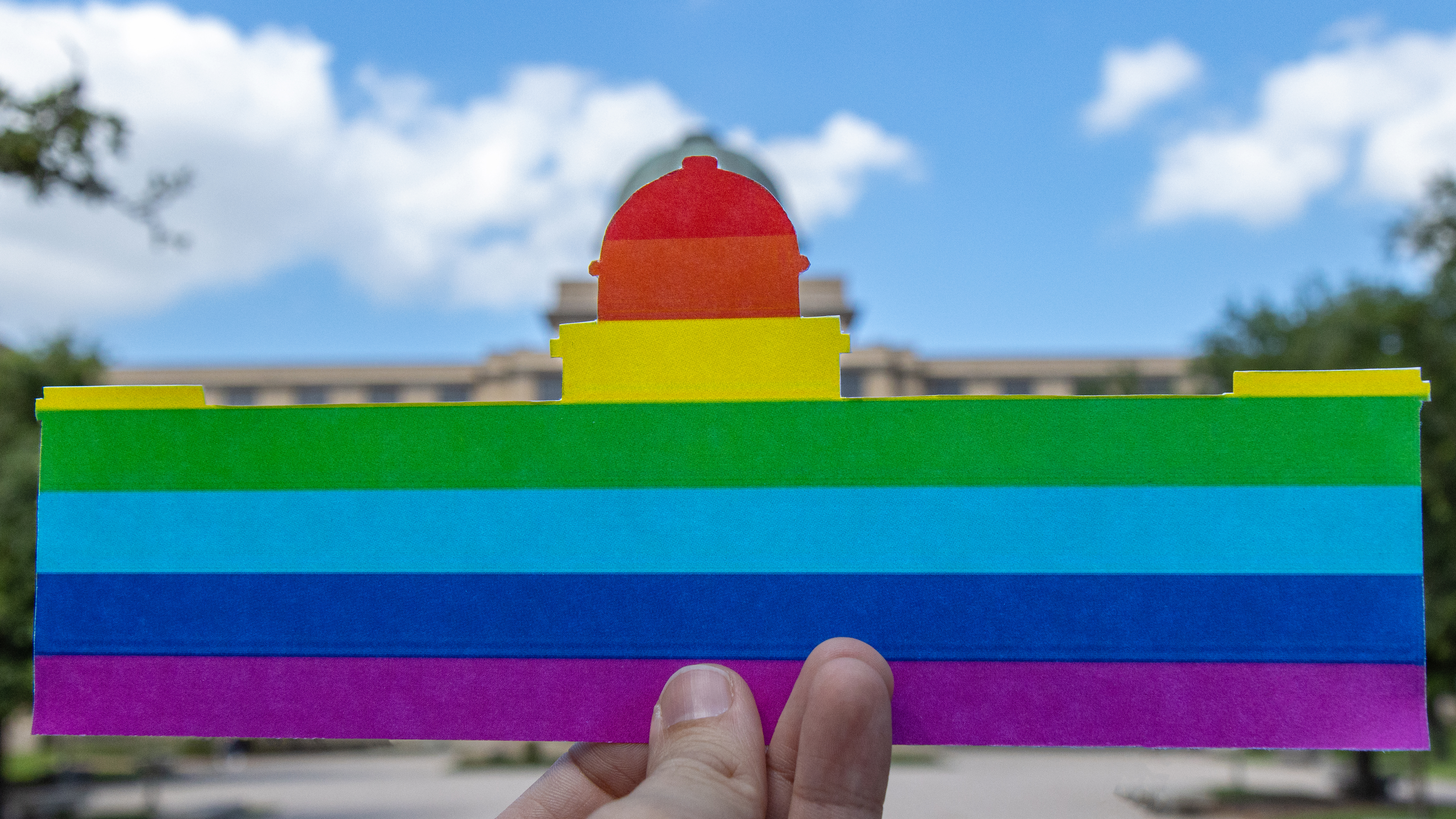
The 2022 creation of the new College of Arts and Sciences at Texas A&M University ushered in novel avenues of collaborating, communicating and connecting in a variety of educational and research capacities, perhaps none more exciting for current and future students than new curricula. As but one example added to the undergraduate catalog last fall, a new LGBTQ+ studies minor, originally approved under the Women’s and Gender Studies (WGST) Program and now housed within the Department of Sociology, offers students new perspectives and knowledge about the LGBTQ+ community along with extensive scholarship and outreach opportunities.
Dr. Theresa Morris, coordinator of WGST and a professor of sociology, and Dr. Chaitanya Lakkimsetti, also a professor of sociology, have had a direct role in the development of this minor and have expressed excitement about the impacts that this new area of study will have on the LGBTQ+ community and its allies.
“When you think about gender and sexuality, LGBTQ+ issues cannot be ignored,” Lakkimsetti said. “It’s very much a part of our social and political climate and learning about it helps students to understand their own experiences and identities while allowing them to connect with larger social structures and understand their own location within them.”
Throughout the development of the minor, faculty worked hard to ensure that students who chose to minor in LGBTQ+ studies would receive the highest quality of education, including presenting them with the opportunities to deepen their understanding and involvement in the community through coursework and an expanding internship program.
Lakkimsetti noted that the minor equips students to understand gender, sex and sexuality not as fixed and rigid but as dynamic social concepts that are subject to resistance and change. It also empowers students as they learn about LGBTQ+ histories, community fashion, social movements and cultural spaces through film, lectures, interactive class activities and community engagement.
Considering LGBTQ+ issues in a new light will also give students cultural competencies that will benefit them in and out of their workplace, Morris notes.
“LGBTQ+ issues intersect with so many disciplines — like sports management, health, linguistics and language, law,” Morris said. “You have these waves of effect; whether you go to graduate school and formally do research or if you go into the workforce after you graduate, you look at the world differently. And when you look at the world differently, you encourage people around you to also look at it differently, and that ends up creating some really positive change.”
Morris adds that the implementation of this minor is a recognition of the Aggie LGBTQ+ community, allowing students to develop a deeper understanding of their identity.
“The symbolism of having this minor means something — particularly to the students who have these identities,” Morris said. “It’s like a formal recognition by the university that this is important, and that can mean a lot to the people who feel that their experience has been peripheralized by society.”
The minor is not only for members of the LGBTQ+ community, however; Morris and Lakkimsetti invite all students to expand their knowledge about the inner-workings of society and how human sexuality has its place within it.
“Gender and sexuality apply to everyone,” Lakkimsetti said. “It’s not a minor just for LGBTQ+ students, although it’s important for our LGBTQ+ students to have the space to learn about their history and culture. It is our responsibility as educators to teach about sex, gender and sexuality to all our students. Everyone has a gender and sexual identity. Learning about this will help us to be conscious of our own social position as well as be better allies to communities who are marginalized.”

